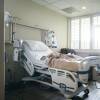A diary kept by a young John F. Kennedy during his brief stint as a journalist after World War II will be auctioned off in Boston this weekend. The diary was written in 1945 when the 28-year-old Kennedy traveled through post-war Europe as a correspondent for Hearst newspapers.

The diary has been kept all these years by Deirdre Henderson, who worked as a research assistant in Kennedy's Boston office in 1959 and 1960. Henderson still lives in Massachusetts.
Henderson says she first met Kennedy when she was still in college in 1954. Several years later, when she was working at Harvard University's Defense Studies program, she met him again, when the then-Senator interviewed her for a job.
“He wanted me to write speeches at first and I said, ‘Senator, I don’t’ think I’m ready to write speeches for you,’" Henderson said. "I said, ‘I’d like to do research on foreign policy and defense.’"
Kennedy responded, "Fine, that’s one of my key interests."

It was a demanding job which included interviewing experts, reading books, and writing up reports to inform the Senator and presidential candidate about complicated issues of global scope and importance.
“You didn’t have computers and you didn’t have Google and you didn’t have any help,” Henderson said. “If he wanted something right away he’d call me in the evening and say, ‘Have you finished that paper?’ And the assignments came heavy and often.”
But Kennedy, she said, was a good boss. “He was a very nice person to work for, very considerate and kind.”
One day, Kennedy handed Henderson a small, leather three-ring binder. Inside were the 12 handwritten and 49 typed pages of a diary he kept in the summer of 1945, when he was working for Hearst. Kennedy wanted her to better understand his views on world events.
The diary recounts Kennedy's remarkable experience as a young reporter, interacting with world leaders in the rapidly shifting world in the months between the surrender of Germany and the bombing of Hiroshima and Nagasaki. Kennedy wrote his observations of the first meeting of the United Nations in San Francisco in July of 1945, offering criticisms and concerns about the formation of the fledgling organization.

The young reporter visited the destroyed Berlin bunker where Hitler died.

He wrote about the experience, and about seeing Berlin in ruins.

In July, Kennedy covered the Potsdam conference, and wrote his observations as Truman, Churchill, and Stalin grappled over what the world would look like after the war.
"If a split among the Big Four develops as far as long-time administrative procedure, it will be serious," Kennedy wrote. "Germany will be unable to build and maintain communications, roads, canals, trade coal, and food. If we don't withdraw and allow them to administer their own affairs, we will be confronted with an extremely difficult administrative problem. Yet if we pull out, we may leave a political vacuum that the Russians will be only too glad to fill."

“My job after that was to save it for posterity,” Deirdre Henderson said of the journal. She published it as a book in 1995, and has decided now is the time to part with the original, auctioning it off on Sunday.

“It’s his words, that’s why it’s valuable," she said. "As a young man who would be president in 16 years. And when you think about it, his knowledge and his knowledge of history, and his insight into what was going to happen in the world ahead—really quite remarkable.”
RR Auction said the diary is expected to fetch about $200,000 on Sunday.
The diary ends with Kennedy returning to Boston to begin his first run for Congress. Among Henderson's favorite passages in it is one sentence that still rings true today.
“The best politician is the man who does not think too much of the political consequences of his every act," she read out of Kennedy's journal.
"Isn’t that good?” she asked.





